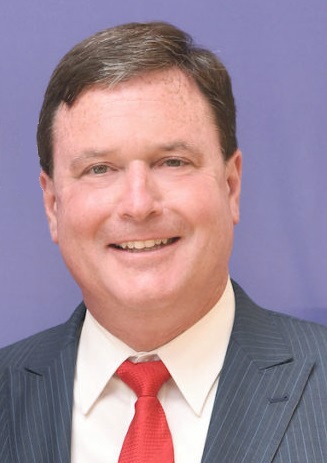By Becky Killian, Staff Writer
When the new Salem Municipal Airport opened with a 3,000-foot runway in September 2019, it was expected the federal funding to construct the final 2,000 feet would be received in late 2022. That money from the Federal Aviation Administration (FAA) is still promised, but the runway completion has been delayed due to changes in how that agency funds projects, as well as the pandemic.
Board of Aviation President Jason Cockerill points to the uncompleted runway as the reason behind a crash that occurred Aug. 6 when a pilot from Pennsylvania was unable to stop the plane she was landing. The plane came to a stop in a soybean field.
“Had it [the runway] been longer, we probably wouldn’t have had that incident,” Cockerill said. “I hate that it happened. I’m glad nobody got hurt.” The pilot had been diverted to Salem from Bedford’s airport, which has a runway of about 4,500 feet.
The crash is currently being investigated by the National Transportation Safety Board. A final report is expected in about six months.
Salem’s runway was always planned to be 5,000 feet, which would accommodate small jets. However, during the pandemic, Cockerill said the FAA changed how it handled funding for projects. Rather than dispensing funding for a portion of a project, the goal became giving larger amounts of money so projects could be completed rather than done in stages. Since that change, other projects, mostly at larger airports, have been fully funded while smaller, already scheduled, funds trickle into Salem’s project.
“Most people do not realize that the FAA provides funding in stages and not completely upfront,” Cockerill said. “We can only do so much of the project each year based on the funding that is allocated. Additionally, most people do not realize that the funding from the FAA does not come from income or property tax revenue – the FAA aviation trust fund is funded from air-related travel taxes such as taxes on airline tickets or aviation fuel – so, in essence, aviation funds aviation projects which was also affected by COVID.”
Currently, the next round of funds from the FAA is expected in late 2026 and will be used to prepare the ground for the runway’s final 2,000 feet. That involves earth moving and grading; however, once the “grade and drain” is finished, the ground will have to be allowed to settle before runway construction begins – and that settling can take months due to the amount of soil that will be moved, the soil’s high clay content, and the water present in the area.
Cockerill and his fellow board members look forward to an October meeting with representatives from the FAA as well as the Indiana Department of Transportation. During that meeting, Cockerill said he intends to promote the economic impact the airport has on the community as well as the safety aspects of a longer runway. He also hopes to get an updated timeline for the project.
“The completion of the project opens the door for further economic growth, both in the jobs that are funded via work that's done on the project as well as the potential jobs that could come as a result of the finished project,” Cockerill said. “There is room near the airport for businesses to locate for those that just want based near an airport, such as the current flight school that's operating at the airport now.”
Airport officials have also asked the FAA for funding for another T-hangar, like the existing hangar located near the terminal building.
The airport has maintained a waiting list for hangar spots since the new facility opened. That list contained about 20 names as of July, Corey Harper, of H&R Aviation Consulting, said.
While waiting on the runway funding, airport officials have worked on other projects that aim to enhance and improve the airport, according to Harper. A parking lot has been installed and officials hope to lease ground to four individuals who want to construct hangars. That construction could begin this year. The individuals will lease ground from the airport and fund the construction of the hangars. Once the term of the lease has expired, ownership of the hangars will revert to the airport.
The airport also has a water and sewer extension that will be paid for with federal money the state is distributing through READI grants.
Despite the long wait for the completion of the 5,000-foot runway, Cockerill is grateful for what progress has been made.
“With the FAA contributing 90 percent of the funding for the project, then INDOT's contribution on top of that, it's hard to say that it hasn't been worth it for the community especially when you consider that the old runway was literally not safe.”

Salem Municipal Airport Board President Jason Cockerill believes the airport's uncompleted runway contributed to an Aug. 6 plane crash. No injuries resulted, according to Washington County Sheriff Brent Miller. Miller’s department, as well as Salem police, fire and EMS personnel, responded to the scene.
Photo by Sheriff Brent Miller









































